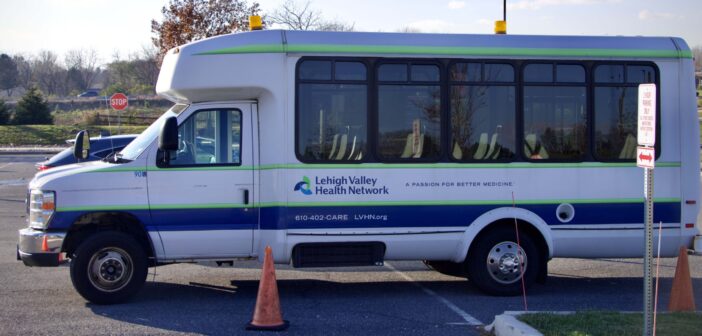In an effort to meet increased demand for behavioral health services, Lehigh Valley Health Network and Universal Health Services plan to build a new behavioral health hospital.
The network announced the plans for the hospital on Feb. 13. According to a press release from the Health Network, the facility would more than triple the number of inpatient beds in the Lehigh Valley.
It will be located on Macada Road across from the Lehigh Valley Hospital-Muhlenberg campus and consist of 144 beds. It aims to relieve a specific need for inpatient psychiatric care and strain from the national mental health crisis that continues to outpace the capabilities of available services.
The increase in demand for behavioral health services existed prior to the onset of the pandemic, although at a more gradual pace. Chere Hunter, director of the Community Voices Clinic, said the pandemic has heightened the need for behavioral services because of increases in depression, anxiety, hopelessness, substance abuse and suicidal thoughts across the adult and adolescent population.
Aaron Sterba, the director of Lehigh’s counseling and psychological services, said there are no inpatient or intensive outpatient facilities in the Lehigh Valley for patients who require daily therapy or need to be observed as they adjust to a new medication.
The hospital will begin to fill that gap and help patients stay close to home while receiving care.
Hunter said he expects the increased demand for behavioral health services to remain.
Brian Nester, president and chief executive officer of the Lehigh Valley Health Network, explained in the press release the pandemic heightened the need for mental health treatment, but the stigma around treatment decreased. To him, this encouraged people to seek help, which further increased demand.
“The need for a variety of behavioral health programs and services is far outpacing regional capacity, and those needs are only growing,” Nester wrote.
The rise in mental health needs is correlated to a rise in social media.
Sterba said social media allows users to view traumatic events and stories constantly in ways that bring the individual closer to experiencing the events more than ever.
“When the media picks (photos or videos), they’re not going to pick the boring ones,” Sterba said. “They pick the ones that are just shocking.”
Hunter defined Post Traumatic Stress Disorder as a condition brought on by witnessing or experiencing a traumatic event. He said social media exposes people to more opportunities to witness trauma because of an ability to know what is happening in the world at all times.
The need for engagement and the algorithms that come with it help ensure this, and Sterba said it is inescapable.
Hunter said traumatic media has impacted the rate of depression and PTSD in the Lehigh Valley.
Suicide has also increased significantly over the pandemic, which Sterba said is the first time it has “bumped up,” breaking the trends of the last few years.
Suicide and self-harm cases are target candidates for a long-term inpatient or intensive treatment facility, Sterba said, and hospitals in the Lehigh Valley lack this capability.
Brian Downs, director of media relations for Lehigh Valley Health Network, said his company is the largest behavioral health care provider in the valley, but they still cannot hold the number of local patients who need inpatient care.
Downs wrote in an email to The Brown and White over 1,600 patients need to be transferred to behavioral health hospitals outside the Lehigh Valley every year.
Downs cited surveys and statistics from the Centers for Disease Control and Prevention, Pennsylvanian Youth Survey and the Suicide Prevention Coalition that reflect increases in symptoms of an overarching mental health crisis.
He said this is the reason the health network’s annual Community Health Needs Assessments “consistently reveal that access to leading-edge, convenient and compassionate behavioral health care is a top priority.”
As for college students, Sterba said the last 10 years have seen a gradual increase in counseling-related services across the country, specifically at university counseling centers.
He said general research released within the last two years shows the rate of students needing particularly intensive services has increased more, meaning the new facility could help those in crisis.
“These crisis cases are exactly who an inpatient and outpatient intensive treatment facility would serve,” Sterba said. “For students whose families live far away, transferring to a hospital closer to home would be best, but it would be nice to have someplace right here in the Lehigh Valley that has more capacity.”






Comment policy
Comments posted to The Brown and White website are reviewed by a moderator before being approved. Incendiary speech or harassing language, including comments targeted at individuals, may be deemed unacceptable and not published. Spam and other soliciting will also be declined.
The Brown and White also reserves the right to not publish entirely anonymous comments.